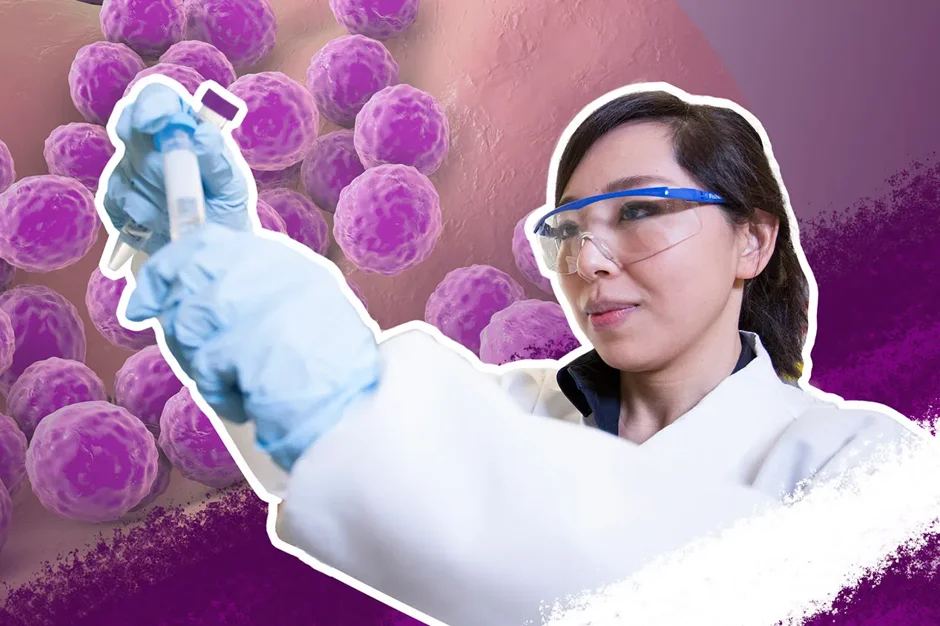What makes good skin bacteria go bad?
Research Highlight | January 25, 2021
We need certain bacteria to inhabit our skin and mucus membranes to keep them healthy.Staphylococcus epidermidis is among these beneficial bacteria, yet it’s also known as an “accidental pathogen”
Multiple and diverse subspecies, or strains, of S. epidermidis can co-inhabit the skin, says Julia Oh, Ph.D. Besides the core genes that all S. epidermidis have in common, each strain has a set of “accessory” genes, the function of which is almost completely unknown.
“This genetic variability enables strains to respond to and thrive in different environments,” Oh says, “and the mixing of these genetically diverse strains appears to be necessary to maintain a healthy homeostasis in the skin. But it can also lead to adaptations that allow them to thrive in the wrong environments, such as the bloodstream, and cause infection.”
Oh is an expert in the skin microbiome, and an associate professor at The Jackson Laboratory (JAX) for Genomic Medicine. Her lab has received a five-year grant totaling $3,160,515 from the National Institute of Arthritis and Musculoskeletal and Skin Diseases to conduct a pioneering survey of the genetic diversity among S. epidermidis strains.
Looking at different strains of S. epidermidis — some from healthy people and others from people with bloodstream infections — she and her team will explore how strains coexist and adapt to their environments, and which genes are involved in the transition from beneficial to infectious.
Molecular Mechanisms of Staphylococcus Epidermidis Strain Diversity, National Institute of Arthritis and Musculoskeletal and Skin Diseases, Grant Number 1R01AR078634-01, 2021 ($628,111) to 2025
